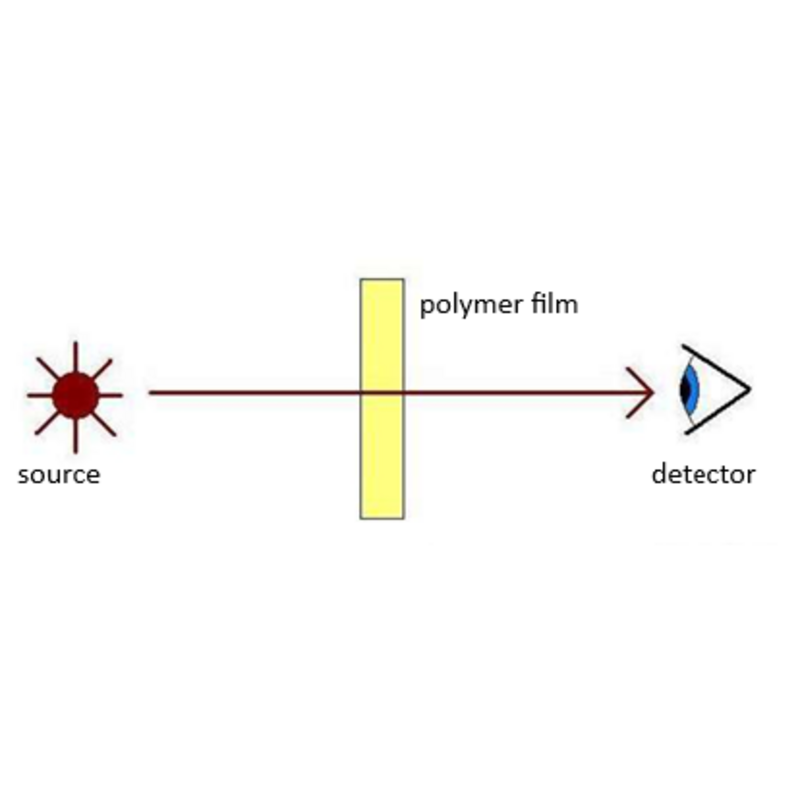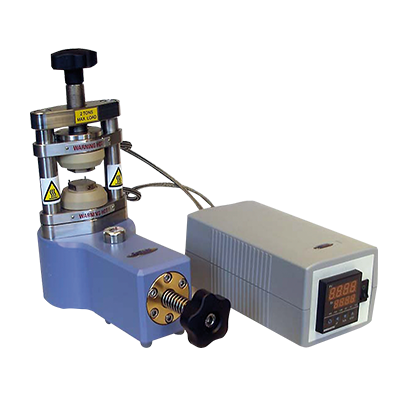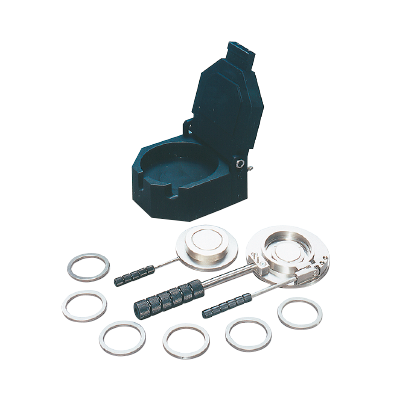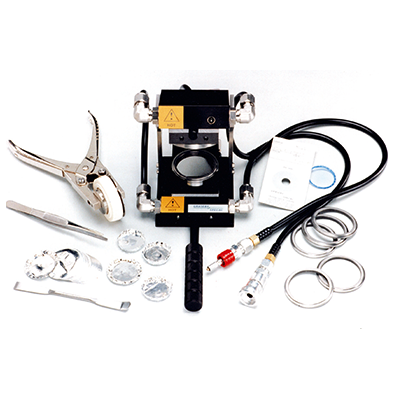Why melt polymer films?
Qualification and quantification of additives, fillers and mixturesToday's plastics are multi-component systems of polymers, additives (such as plasticizers) and fillers. Composition monitoring is an important part of quality control. Since many of these components are present in only a small percentage, reflectance methods are often ruled out for sensitivity reasons. For thermoplastics, the production of polymer films for measurement in transmission is the solution. The polymer films can be produced in sufficient thickness to obtain appropriate detection sensitivity for the low-concentration components. Lambert-Beer's law also applies here. By means of calibrations, quantification of individual components is possible.
Further information
Polymer films with reproducible thicknesses from 15 µm to 500 µm can be produced with a film pressing tool. The sample (polymer granules or powder) is placed directly into the film pressing tool without prior preparation, and the desired film thickness is selected by a spacer ring. The granules or powder are then pressed into a film at its appropriately set melting point and the specified pressure (typically about 1 t) using a hydraulic laboratory press.
Another commonly used method for spectroscopy of polymers is ATR (Attenuated Total Reflection). The ATR technique, as opposed to transmission, is a surface measurement of a sample type with a typical penetration depth of about 2 micrometers into the sample surface (using a diamond or ZnSe crystal), giving an effective film thickness of about 4.5 micrometers for a single reflection. From an ATR measurement of a plastic sample, the type of polymer family can be determined, but the sensitivity of the measurement may not be sufficient to determine specific, low-concentration sample constituents.
Contact

Navigation
Categories
Contact
Quantum Design GmbH
Breitwieserweg 9
64319 Pfungstadt
Germany
| Phone: | +49 6157 80710-0 |
| E-mail: | germanyqd-europe.com |





